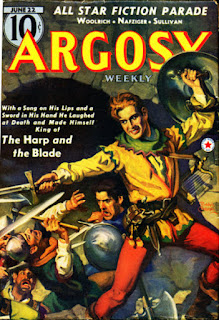After spending the better part of 18 years with the same company, albeit one that has been purchased in that time, undergone many changes, and looks very little like the one I walked into on my first day back in June 2004, I
recently made the momentous decision to change jobs. I landed at a new company, hired for a role that did not exist, which this company created exclusively for me, and they’re paying me well to do it.
It’s been a hell of a last few weeks, starting from accepting the offer on Thursday, Jan. 20, telling my boss and my colleagues on Friday Jan. 21st, then releasing the news to the broader healthcare community which I serve this past Thursday. Since then, messages of well-wishing and support (mixed with some of surprise and disbelief, and sadness), have been pouring in non-stop. It’s left me feeling exhausted, but also incredibly grateful, with a great sense of anticipation for this next chapter in my professional life. I’ll be working from home, permanently, as this new company—small and nimble—does not have a brick-and-mortar presence. I can’t wait.
What did I learn over the last 17 ½ years, and in particular this latest momentous turn in my career? What would I recommend to others looking to further their own career? Here’s my advice.
1. Get comfortable with discomfort. As someone who suffers from mild social anxiety, and has struggled with bouts of inferiority, imposter syndrome etc., giving opening conference addresses in front of crowds as large as 1,800 people, and leading teams through tough times, has not been easy, and resulted in considerable levels of personal discomfort. Playing football and lifting heavy weights has allowed me to work through pain, but never inured me to it. Discomfort never goes away. You have two choices when it confronts you—retreat, or press on. I choose the latter almost every time, and that has made a difference. Like tearing muscle fibers during a workout, and then allowing them to repair themselves and get stronger, you grow professionally in zones of discomfort. A hard lesson, but true.
2. Success mainly is a result of hard work. I don’t disregard luck, or privilege, but mainly, persistence and discipline make the difference, even more than talent. I have no special level of intelligence, or rare skill, but I do stick to things after others give up. I have a good attention span. I also communicate well. But most of all I’m a fairly disciplined individual. I like keeping busy and doing good work. I don’t kill myself with marathon days, and deeply value and make time for family life, but I don’t slack off. Stack several good days of work on top of each other, and you will have something good to show for it. Stack several good years together, and you’ve got a career and a resume that will make you stand out. There really aren’t shortcuts to this process.
3. Don’t blame others for your failures. One of the best books I’ve read in the last five years is ex-Navy Seal Jocko Willink’s
Extreme Ownership. He describes a rule for self-conduct that is both incredibly simple, but very hard to rigorously follow—taking responsibility for
everything in your life. Yeah, shit happens along the way, but we can choose how we react to it. We can choose to use failure as an opportunity to get better. If you experience failure, start not by looking for someone to blame, but asking yourself: What could I have done better? What will I do better next time? If you are a leader and someone on your team comes up short, instead of pointing the finger, recognize that it’s your responsibility to train that person better, and equip them with the tools they need to succeed. Victim mentality is a terrible mindset to adopt.
4. Kindness goes a long way. Treat people—especially your direct reports—as you would want to be treated. More than ever these days, there is no bossing people around (there never really was, unless we’re talking medieval lords/vassals relationship). In these days of labor shortages and “the great resignation,” employees more than ever hold the upper hand. Your colleagues will respond to being treated fairly, and with kindness, and will reciprocate with loyalty. You will find yourself surrounded by people willing to work hard and make you look better, because they care for you.
5. Networks are a thing, so cultivate them. Talk to people. Help them in their careers—invite them on a podcast if you have one, allow them to speak at your event, write articles about them, respond to their emails, link in on LinkedIn. Inevitably they will return the favor. This creates a network effect, where knowing a lot of people gives you acceptance, even authority, in your field. Congratulate others on their successes. Treat your competition as people, because that’s what they are, and all they are. Do this, and you will find doors open when you did not know they even existed.
6. Dip your toe in the water before taking the plunge. Putting in a few extra hours of work, after hours, is not easy, and will cut into your Netflix time, but it allows you to try the thing before you commit to it. In my case I started freelancing for this new company on my personal time, and they liked what I had to offer, which led to a conversation about coming on board full time. In short, see bullet point 2.

